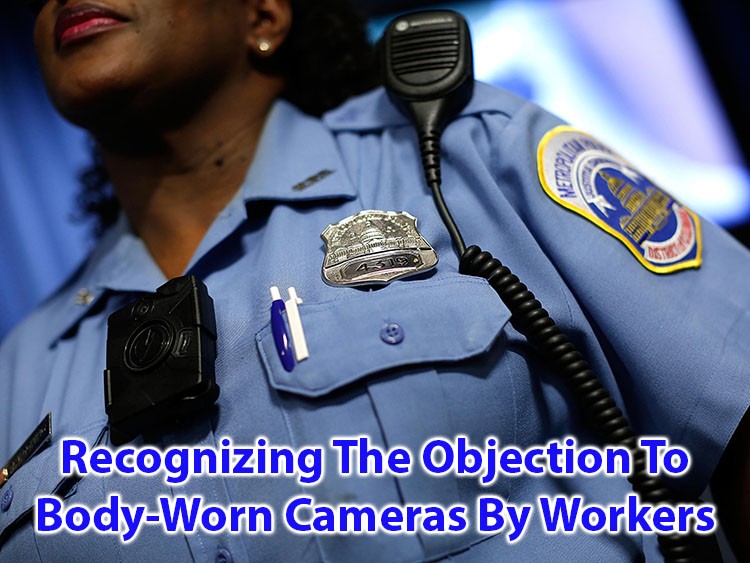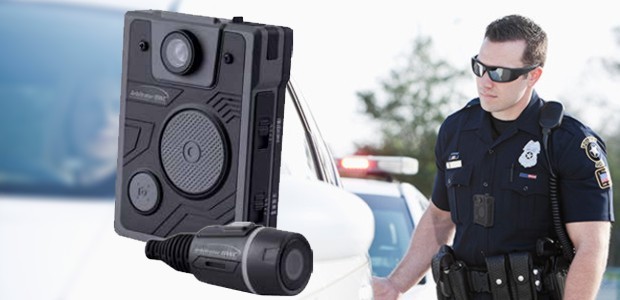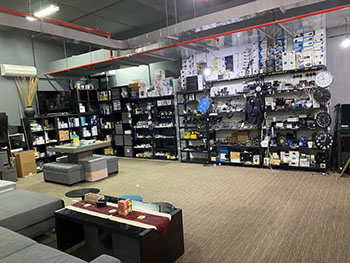Recognizing the Objection to Body-Worn Cameras by Workers
The cameras should lead to a decrease in violence against police officers. Critics fear the opposite. The problem is one-sided control.
A body-cam on the shoulder of a policeman
Should she walk all the time?
Body-cams are the latest craze of police rearmament. One federal state after another is currently creating the legal basis for the use of small cameras on the shoulder or on the breast pocket of police officers. So far, the police are particularly in favor of innovation. Whether it also brings advantages from a civil law perspective depends entirely on the design.
Through a high-tech camera placed on the policemen’s shoulder, the behavior of the agents will be monitored.
The measure is, one, to validate that the correct action of the police, according to the protocols, and two, to avoid acts of possible corruption, and number three, also precisely to have evidence when they complain against the police action.

https://www.google.com/search?q=Understanding+employee+resistance+to+body-worn+cameras&sxsrf=ACYBGNS8Fg-kTsdx3cOXRTpYu3Y40IV-jQ:1573804815084&source=lnms&tbm=isch&sa=X&ved=2ahUKEwjxs8vn3-vlAhUBQ48KHQhlAcMQ_AUoAnoECA4QBA&biw=1533&bih=801#imgrc=pDETzAJthCkwuM:
The police believe that recording conflicting controls reduces violence against police officers. Critics suspect the opposite. Rioters are usually drunk and could feel particularly provoked by the use of cameras. Both sound plausible. Presumably, the police will be the first to report if Body-cams are actually counterproductive and endanger the health of officials.
The second problem is the so-called pre-recording. So that the activation of the camera and the previous minute is available – which is useful for understanding the situation -, the camera must be constantly running. Data protectors see it as new data retention. The term seems a bit too high. In the retention of telephone data, the communication behavior of the entire population is at least six weeks recorded. Here, on the other hand, it is about the precautionary recording of images and sound of just 60 seconds – and this in a situation in which the police do not act secretly but openly.
Especially problematic is the one-sided control of the Body-cams. Because it is only the police officer who determines when the scene is stored permanently. And he can switch off the camera at any time. The evaluation of the recordings is done by the police. Therefore, the concern is obvious that the Body-cam only the aggression of citizens is documented, but not the wrongdoing of police officers. The Body-cam would then not an objective, but a manipulatable means of reference.
An investigation by the University of Cambridge came to amazing results: when police could turn the Body-cam on and off, the use of force by the police increased by 73 percent. By contrast, if the camera ran throughout the shift, the use of force dropped 36 percent. Real de-escalation seems to be only possible if the Body-cam records delicate inserts completely. This must be discussed again with the data protection officer. And the police can show at this point whether it is all about the protection of police officers or the well-being of all involved.
“The technology is available so a lot of police departments in the state and the country are going to have body cameras, to have video from the perspective of our officers, to see what they are trying,”
The police must, before using and collecting these records, determine when they collect them, in what situations they will do it, in what situations they are allowed to do, what are they going to do now, how and when and how they will be destroyed.
The use of body cameras means the recording of a significant amount of audio-visual content including interactions with identifiable individuals. In these interactions, the name, race, ethnicity, color or age of the individual may be recorded. These recordings, in addition to the new technologies of video analysis and facial recognition, allow law enforcement to achieve an unprecedented level of precision in the identification of an individual. Any information regarding an “identifiable individual” is considered personal information within the meaning of the Personal Information Protection and Electronic Documents Act (PIPEDA).
Section 7 of PIPEDA provides that “personal information may not be collected without the knowledge and consent of the individual”, unless, among other things, “the collection is reasonable for purposes related to an investigation into the violation of an agreement or the contravention of federal or provincial law “. Yet, any apprehension of individuals by police officers is not necessarily investigated. In the name of respect and confidentiality of our personal information, the use of body cameras can not, therefore, be spared from the legal framework. The free use of this technology would undermine the meaning of the notion of privacy.
The risk of invasion of privacy does not stop there. The authorities would not only archive who you are but also what you say. Moreover, nothing would prevent the body cameras from recording information on random passers-by without their knowledge. This technology will have to enter smoothly into our society so as not to infringe on privacy.
In the same vein, it is interesting to note that the cameras issue is faced with opinions shared internally. In addition to the legal concerns, the adoption of body cameras would represent an important investment of time and resources in the units concerned.
The challenges are to collect the statements of witnesses and victims. We have found that people are reluctant to testify as witnesses because they know they are videotaped. Some people strongly refuse to be recorded. Others try to dodge the camera view. The cameras have to be activated manually is a challenge in itself. For … officers who have never had them, they will have to learn how they work and remember how to do it in a high-stress situation. The investigation shows that officers need more or less half a year for the act of turning on the camera becomes natural.










